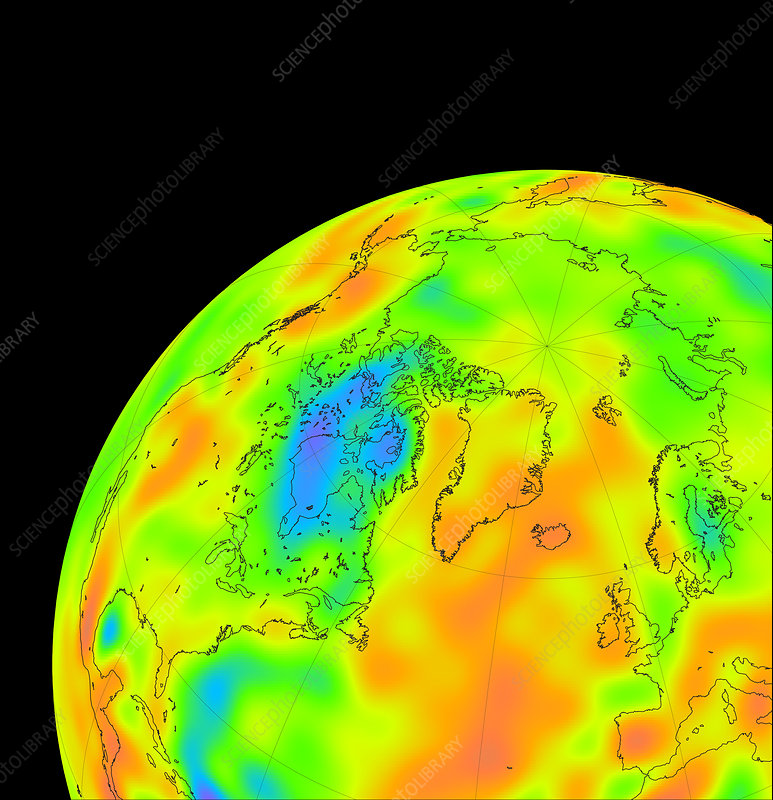The anomaly at Hudson's Bay is actually about 0.005% - or 1/200th of a percent. That tiny difference is likely caused by both the additional convection of molten rock underneath the area and the "crushing" of land due to the higher weight of a glacier presence in the depression back in the last ice age - the latter a temporary issue from which it has yet to rebound, but will in ~5000 years.
Credit: Mark Simons / California Institute of Technology, 1997 / Science Photo Library
